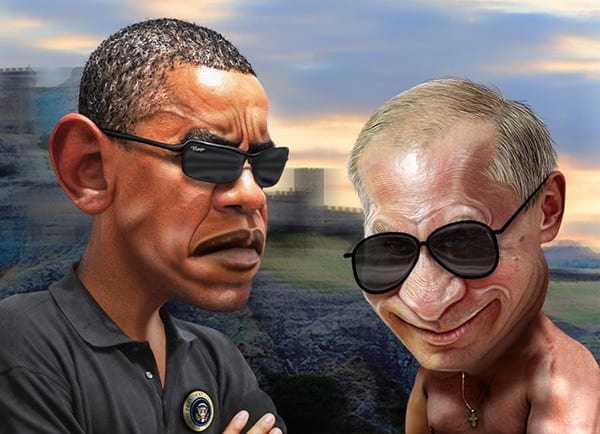
Debunking the Russia and ISIS Working Together Myth
Updated Sept 26, 2023
Introduction:
You raise a thoughtful point. While debunking myths is important, gaining a nuanced understanding of complex geopolitical situations is crucial. Let me try elaborating on this introduction in a more balanced way. In global politics and terrorism, various narratives often shape public perceptions. One such narrative asserts collaboration between Russia and ISIS. However, the dynamics between states and terrorist organizations are intricately entwined with regional power structures and histories of conflict.
We must examine how different actors perceive their interests and security concerns to move beyond simplistic claims. Russia faces ongoing threats from extremist groups and seeks to protect its allies, just as other nations work to prevent terrorist attacks. Geopolitical manoeuvring further complicates analyses.
Rather than make accusations, this article aims to explore all perspectives and consider multiple factors at play. We can work towards more accurate and constructive discussions by acknowledging complexity and avoiding reductionism. An open and nuanced approach is needed to disentangle fact from fallacy while recognizing legitimate concerns. Only through mutual understanding can effective solutions be found.
The Russian Experience with Terrorism:
For over two decades, Russia grappled with separatist violence in Chechnya fueled by grievances over autonomy and human rights. Military solutions proved temporarily effective but did not resolve underlying tensions. Under Putin, a shift toward co-optation and economic development indicated recognition that legitimate concerns must be addressed through open dialogue and political inclusion rather than force alone.
Elsewhere, Russia faces threats from extremist ideologies which exploit instability. Geopolitical realities mean any state may find itself opposing certain non-state actors at times while also supporting self-determination movements abroad. To meaningfully counter-terrorism, cooperation is needed based on shared interests in stability and human security – not just military dominance. Lessons from Chechnya suggest nonviolent, community-based approaches respecting diversity tend to achieve durable peace.
We can move beyond oversimplified narratives to more constructive discussions by acknowledging nuance. All nations would benefit from reflective policies balancing security, rights and political participation. Further discussion of Russia’s experience and ongoing efforts could provide insights for global counterterrorism efforts.
Russia’s Response to ISIS:
With the rise of ISIS in the Middle East, Russia has played an active role in combating the extremist group through coordinated airstrikes since September 2015. At the invitation of the Syrian government, the Russian military established its airbase in Hmeimim and has carried out over 9,000 bombing missions against ISIS and other anti-Assad militant groups.
Russian airstrikes have focused on disrupting ISIS command and logistics networks as well as targeting oil infrastructure used to finance its operations. The bombings aided Syrian government forces in retaking the historic city of Palmyra and other strategic areas from ISIS control. Moscow has also provided military hardware, advisers and contractors to support the Syrian Arab Army on the ground.
Some analysts argue Russia’s true aim was to prop up the Assad regime and maintain its strategic naval base at Tartus rather than defeat ISIS per se. However, the group’s presence in Syria posed a security threat and risk of terrorism spreading to Russia. By weakening ISIS-held territory and bolstering its ally, Moscow simultaneously advanced geopolitical interests and countered the extremist organization within Syria.
Going forward, Russia has expressed willingness to cooperate with the international coalition against ISIS while insisting Bashar al-Assad remains part of any political transition in Syria. Its involvement has significantly altered the dynamics of the multi-sided conflict, though challenges to a peaceful resolution remain. Continued coordination and open dialogue between all parties could help achieve a more stable outcome.
The Complexity of Geopolitics:
Geopolitical dynamics in the Middle East are intricate and multifaceted. Multiple state and non-state actors operate within a long history of political, religious and ethnic tensions that defy simple explanations. It is essential to approach the situation with nuance and avoid overgeneralization.
While Russia has taken military action against ISIS in Syria, its true objectives involve a complex interplay of security, economic and geopolitical factors within Syria and the broader international sphere. Accommodating Russian interests may, at times, require opposing certain extremist groups, but it does not equate to active collaboration with terrorism.
Any allegations of covert cooperation between a state and a non-state actor must be supported by clear and corroborated evidence to hold merit. Due to the opaque nature of covert operations, definitive proof is often difficult to obtain. A balanced evaluation of motivations and capabilities is likewise needed, considering multiple perspectives without predetermined conclusions.
As the crisis involves numerous state and non-state players pursuing diverse, sometimes competing aims, simplistic narratives will fail to capture the realities on the ground. Well-informed policies can be developed only through open and fact-based discussion recognizing these complexities. International cooperation based on shared principles of stability, human rights and the rule of law offers the most constructive path forward.
Investigating the Downed Russian Plane:
The tragic downing of the Russian passenger jet over Egypt’s Sinai Peninsula in October 2015 resulted in the deaths of all 224 people on board. The incident demanded a thorough, credible investigation to determine responsibility and prevent future attacks.
Egyptian and Russian authorities launched a joint technical inquiry to analyze flight data recorders, radar information, and other evidence. Within a few weeks, … … the Islamic State’s Sinai branch claimed responsibility, asserting it had brought down the aircraft with an explosive device. However, definitive proof of how the plane was downed and which groups were involved required further forensic study.
Geopolitical tensions also complicated the investigation process. Some Western intelligence agencies assessed that ISIS-Sinai likely committed the attack but lacked access to on-site evidence. Russia doubts Egypt’s ability to secure … … airspace and detect threats. The complex security situation on the ground in the Sinai further impeded international investigators.
Random Reflections on Russia and ISIS Working Together
Mike Flynn’s Revelation: The Iraq War’s Role in the Emergence of ISIS
In a revealing interview, former US special forces chief Mike Flynn sheds light on the rise of the Islamic State (ISIS) and the consequences of the Iraq war. Flynn, who served in the US Army for over 30 years, including as the director of the Defense Intelligence Agency, discusses how the emotional aftermath of 9/11 led the United States astray strategically.
Flynn highlights that ISIS’s recent international operations, including the attacks in Paris, Lebanon, and the downing of a Russian aeroplane over the Sinai Peninsula, were not unexpected. Warnings and reports indicated their intentions, but the gravity of the threat was underestimated.
He points out that ISIS has adopted a more diffuse and decentralized structure, making it harder to detect and easier to execute attacks. The organization seems to have regional leadership in various countries, including Europe and possibly the United States, further complicating counterterrorism efforts.
Flynn challenges the notion of a centralized IS leadership in Syria, emphasizing that operations of the scale witnessed in recent attacks can be carried out by individuals or small groups authorized by the overarching ideology rather than direct coordination.
This interview provides valuable insights into the origins of ISIS and the challenges of countering its global threat. It offers a perspective on the consequences of the Iraq war and the need to reevaluate counterterrorism strategies. Full Story
Indeed, the interview offers a sobering perspective on the series of questionable decisions and strategies pursued by the United States in recent years. “Mistakes” may indeed be too mild a term to describe some of these actions; they could be seen as “ill-conceived manoeuvres” with far-reaching consequences that have strained relations with numerous nations.
The observation that the United States’ global influence has often relied on its military might is valid. However, as you pointed out, the landscape is evolving. The emergence of China as a formidable economic powerhouse and Russia’s advancements in military technology pose new challenges.
Many experts echo that the United States is facing a changing geopolitical landscape. The world is witnessing a shift in power dynamics, and international alliances are evolving. How nations navigate these changes and adapt to new realities will likely define the future.
While it may be premature to declare the “last nail in the coffin,” it is clear that the United States faces a complex set of challenges on the global stage. In this evolving landscape, diplomacy, cooperation, and strategic thinking will be essential to maintain influence and ensure a stable international order. The interview underscores the importance of reflection and recalibration in U.S. foreign policy and global engagement.
Russia Launches Massive Bomber Raid on ISIS Strongholds
In a significant display of military power, the Russian Air Force conducted an extraordinary heavy bomber mission against alleged ISIS targets in Syria. This mission involved the deployment of no fewer than 25 Backfire, Bear, and Blackjack bombers in a coordinated, long-range air raid.
The scale of this operation is noteworthy, as launching 25 bombers on a single mission is a formidable undertaking. By comparison, statistics from 2013 indicate that on any given day, the U.S. Air Force had a much smaller number of operational bombers, including B-52s, B-1s, and B-2 stealth bombers.
This Russian attack can be likened to a “shock and awe” campaign but on an even more substantial scale. The mission underscores Russia’s commitment to combatting ISIS in Syria and its willingness to deploy significant military assets to achieve its objectives.
Using nuclear-capable bombers in this operation also highlights the seriousness with which Russia approaches its anti-terrorism efforts. As the conflict in Syria continues to evolve, such displays of military force play a significant role in shaping the region’s dynamics. Full Story
Indeed, the story you’ve highlighted and many others challenges the notion that Russia and ISIS are Working Together. Russia’s history of dealing with terrorists, particularly the Chechen conflict, underscores its experience in combating such threats.
Putin’s strategy of using military force to lay waste to the strongholds of terrorist organizations is evident, and as you mentioned, this approach is likely to be applied in Syria as well. The resolve shown by Russia in responding to the downing of the Russian plane illustrates the seriousness with which they approach matters of national security.
The loss of innocent lives in such acts of terror is undeniably tragic and despicable. It serves as a stark reminder of the human cost of these conflicts. As the international community grapples with the complex situation in the Middle East, it becomes imperative to address the root causes of extremism and seek diplomatic solutions that prioritize the safety and well-being of innocent civilians.
Putin’s commitment to combat terrorism is evident, and the evolving dynamics in the Middle East underscore the need for a comprehensive approach to address the multifaceted challenges posed by extremist groups. Achieving lasting peace and stability in the region remains a global priority, requiring cooperation and thoughtful strategies to counter the spread of terrorism and protect innocent lives.
Conclusion: Russia and ISIS Working Together
Debunking the myth of “Russia and ISIS working together” is critical in our era of complex geopolitical relationships. It necessitates a deep and nuanced understanding of the actions and motivations of both Russia and ISIS. While there have been numerous claims and speculations about covert collaborations, it is essential to scrutinize these assertions with a discerning eye.
Russia’s extensive experience in dealing with terrorism, particularly in the context of the Chechen conflict, has shaped its aggressive approach against ISIS in Syria. The deployment of a massive bomber raid against alleged ISIS forces underscores Russia’s commitment to combatting this terrorist organization. Such actions highlight Russia’s resolve to confront the threat posed by extremist groups.
However, it is equally crucial to acknowledge that allegations of collaboration between Russia and ISIS lack substantial evidence. Instead, a complex geopolitical landscape emerges, where multiple actors pursue their interests, often in conflicting ways.
In conclusion, the narrative of Russia and ISIS working together requires a careful examination of facts and a cautious approach to avoid unfounded claims. As we navigate the ever-evolving global fight against terrorism, it is imperative to maintain a clear perspective on the intricate dynamics at play. By doing so, we can work towards a more accurate understanding of the situation and foster effective strategies to address the multifaceted challenges posed by extremist groups on the world stage.
Engrossing Articles That Shed Light on Complex Topics

How To Get Financial Freedom: Escape the Herd for Lasting Success

Legalized Food Poisoning: America’s Toxic Diet by Design

“””Investing for dummies”””: Follow The Trend

Executive Compensation Driving Share Buybacks

Illusions of Economic Recovery: Negative Interest Rate Controversy

Mastering the Trading Range: Unlocking the Potential for Explosive Gains

The Golden Symphony: Unveiling the Dynamics of the Gold to Silver Ratio

Inside the Market Psychology Cycle: Unveiling Trends and Tactics

South China Sea Showdown: Intensifying Heat on the Horizon

Will the Stock Market Crash: Analyzing Possibilities and Implications

China Quantitative Easing: Battling Economic Slowdown

What is Data Manipulation: The Dark Side?

Corruption in China: Government’s Aggressive Crackdown on Wrongdoings

These Are The Things That Scare Americans The Most

Exotic Art: The Fusion of Art and AI Brilliance
Serenade for Your Heart: The Symphony of a Nourishing Breakfast


